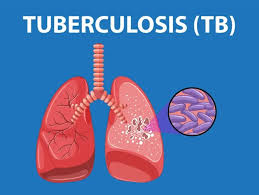THE disturbing dimension in which Tuberculosis disease has plunged the global community into perilous health situations with the attendant implication on human safety, indeed calls for collective efforts of health institutions, experts and other critical stakeholders in relevant agencies to mitigate the impact on vulnerable Nigerians.
Tuberculosis (TB) is a contagious infection that usually attacks the lungs. It can also spread to other parts of the body, like the brain and spine. Scientific analysis indicates that there is a type of bacteria called Mycobacterium tuberculosis that is said to be responsible for the ravaging ailment. Besides, it is instructive to note that when a person breathes in TB germs, the germs can settle in the lungs and begin to grow from there, where they can move through the blood to other parts of the body, such as the kidney, spine and brain, in such a terrifying manner that are often difficult to describe.
At the last count, according to provisional data, over 361,000 Nigerians are battling with Tuberculosis disease cases at different forms and stages; while nine per cent of these are children, apparently marking a significant increase in the number of cases compared to what previously was the case.
Typical of a developing country, lacking in all the key essentials necessary to combat the silent killer disease, Nigeria, with its staggering 90,000 new TB cases annually, is a ticking time bomb waiting to happen. But the lack of awareness and understanding is the real explosive, fueling the spread of the disease and perpetuating the stigma as patients are often shunned, ostracized and left to their fate in peril.While substantial steps have been taken towards educating people on the apparent causes and treatment of TB cases, it is however, proper to offer perspectives on some basic preventive measures aimed at mitigating the spread of the over 300-year-old disease, which is at worst destructive and disturbing to humanity.Given the worrisome nature of TB and the havoc it has wreaked on humanity, as a serious and potentially fatal disease that spreads through the air, it is imperative to highlight some of the basic ways to prevent its spread that have proven to be efficacious and better still reliable, among which is vaccination, testing, early diagnosis, quarantine ,treatment and medication. Immune health and hygiene are also important ways to stop the spread.
Despite the introduction of various strategic health frameworks, including DOTS and STOP TB, Nigeria’s TB burden persists and continues to spread at an alarming rate. Although the STOP TB strategy has offered some reasonable level of hope, thus halving the death rate from TB within five years, the battle against TB is far from being won and a TB-free future for Nigeria remains a mirage.
Much to our shock, Tuberculosis, has a staggering grip on Delta State, with a worrisome figure of 15,000 adult-infection and 2,372 children living with the disease. This disturbing disclosure was made manifest at a recent workshop, where experts gathered to tackle the TB epidemic head-on. Hosted by Concern for Women and Youth Empowerment (COWOYEM), in partnership with Paladin Organisation and funded by USAID, the event, no doubt brought together a blend of NGOs, civil society groups, media representatives and government agencies aimed at sharing knowledge, expertise and strategies for TB advocacy, tracking and media engagement.In all of this, one thing is certain, which is that people must of necessity maintain environmentally conscious lifestyles, ensure proper hygiene and remain clean at all times; this way, the propensity to contract TB would be minimal, while Governments at all levels should continuously give priority to the health needs of Nigerians, particularly the common man and the vulnerable by providing the essentials in the health facilities.
However, Delta State has taken bold strides in the fight against tuberculosis by ensuring that Deltans have access to cutting-edge diagnostic tools and treatment, with the current procurement of 10 cutting-edge GeneXpert machines, providing a rapid and accurate diagnosis.
As a testament to its serious inclination to this commitment, a recent study at the Tuberculosis and Leprosy Referral Centre Eku, Delta State, sheds copious light on the treatment outcomes of 425 TB patients over five years, with 81.2 per cent treatment success rate
Despite these efforts, more must be done to tackle the disease headlong nationwide.


